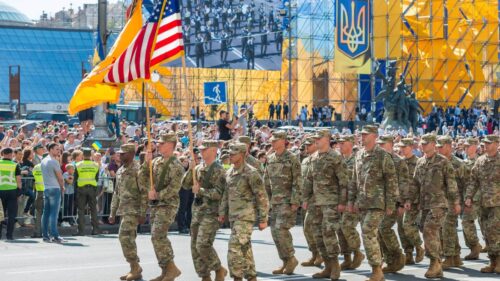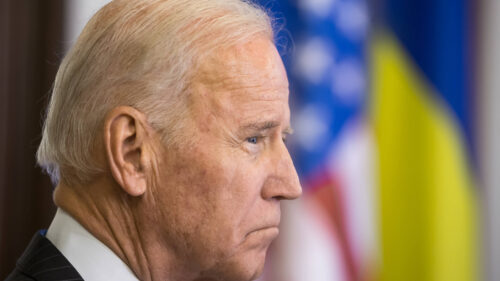Any objective, non-Western observer of geopolitics would be baffled by the conduct of European nations in the Russo-Ukrainian War. The United States and its Group of Seven (G7) partners seem determined to prolong the proxy war with Russia. They believe that by supplying increasingly lethal weaponry to Kyiv and raising the level of confrontation, they can force Moscow to the negotiating table. The logic appears to be that this strategy will force a negotiated solution, rather than inexorably lead to a conflict between Russia and NATO.
The West has progressively raised its involvement by supplying long-range artillery, advanced air defense systems, tanks and air-launched cruise missiles, as well as sea-based weaponry, to hit Russian targets. Satellite intelligence, surveillance and reconnaissance (ISR) has been provided to Ukraine for more accurate strikes.
Western escalation is brewing
The New York Times has revealed, somewhat surprisingly, that the CIA has been “financing” and “partly equipping” several underground bunkers near the Russian border. Their goal is to gather vital information on defenses and equipment, as well as assist the Ukrainian military in directing fire. Despite strong warnings from Russia, the Dutch have announced their decision to supply 18 F-16 aircraft to Ukraine.
NATO Secretary-General Jens Stoltenberg told Radio Free Europe that Ukraine’s right to self-defense includes attacking legitimate Russian military targets outside Ukraine. Elsewhere, German Chancellor Olaf Scholz revealed that UK and French special forces are on the ground in Ukraine to operate the advanced equipment supplied to Kyiv.
Scholz seems opposed to the supply of long-range Taurus missiles to Ukraine. If these warheads are used for strikes inside Russia, it may draw Germany into direct conflict with Moscow. However, the leaked exchanges between German officers suggest a huge disconnect within the German establishment. They seemingly discussed the efficacy of using Taurus missiles to target the Crimean Bridge and ammunition dumps to its north. They also deliberated about how to launch these strikes without directly involving the German government, suggesting that the missile’s manufacturer, MBDA Deutschland GmbH, could act as a front.
Another potential step could seriously exacerbate the situation. On February 26, at a summit of 20 European leaders in Paris, French President Emmanuel Macron aired the possibility of putting European troops on the ground in Ukraine. This disregards Russian warnings that such a move could trigger a direct war between NATO and Russia.
The US, Germany, the UK, Poland, the Czech Republic and Slovakia, among others, have ruled out the possibility of sending their troops to fight in Ukraine. Macron, however, believes that the people decrying this idea today are the same ones who decried the supply of tanks, aircraft or long-range missiles to Ukraine two years ago. In the face of rebuffs and political opposition at home, Macron insists that what he said was fully contemplated and that the intention is to put Putin in a “strategic dilemma.” He did not explain what that could be or why it would be only one-way.
Ukrainian support and Baltic aggression
The thought behind the proposals to increase EU military support for Ukraine is that European countries must take more responsibility for their own security. This is especially true considering the possibility of Donald Trump being re-elected as US president in November. He warned Europeans that if they do not ramp up their defense spending, rather than relying on the US for security, he will leave them to fend for themselves against unstated Russian threats. EU members are now increasing their defense budgets even when their economies are under pressure. Germany and the UK are facing a recession and social unrest is spreading in several European countries, as indicated by widespread protests from farmers.
France, Germany, the Netherlands, the UK, Italy, Denmark and Canada have signed bilateral security agreements with Ukraine. What these precisely entail is not clear. However, it seems the objectives are to give assurances of support to Ukraine, should there be a change in the US administration; to give Kyiv confidence that despite flagging public support for the conflict in European societies, aid will continue and to signal to Russia that the EU’s investment in the conflict will continue regardless of Ukrainian losses and the war of attrition favoring Moscow. There is also a hint that Ukraine’s entry into NATO may not be imminent. Kyiv needs assurance that individual European countries are willing to commit themselves to Ukraine’s defense.
The Baltic states are the most vociferous in pushing for a confrontation with Russia, both within the EU and in international conferences. Many countries of the Global South believe that the Russo-Ukrainian War is a European affair. This has adverse consequences for them economically because of the disruptions it is causing in food, fertilizer and energy supplies. The Europeans argue this conflict goes beyond their continent and involves the international community as a whole, claiming that it violates the UN Charter, international law and the sovereignty and territorial integrity of states. This is not a convincing argument; European nations are themselves guilty of such transgressions, and there is no guarantee that this will not continue in the future.
Russia has not attacked the Baltic states, which are members of NATO and have the bloc’s troops stationed on their soil. These countries are hardly central to international geopolitics, have a combined population of only six million and have negligible military strength. Given their deep grievances against Soviet rule, their desire to drive an increasingly dangerous conflict in Europe, along with Poland, Finland and Sweden, is concerning to non-Western countries.
Russia may not escalate its warfare
The argument that Russia will attack other countries if it defeats Ukraine is fictitious. Putin has been in power for 24 years now, NATO has expanded five times and the bloc’s troops and US missiles are stationed close to Russia’s borders. Russia has only aggressively responded to Georgia and Ukraine. In both cases, Putin warned that Russia would take action if these two countries were drawn into NATO.
Putin’s repeated declarations that Russia has no intention of attacking any European country are being dismissed, as they do not fit the narrative of Moscow’s threat to Europe. Why Russia would enter into a conflict with NATO is not explained. As for Russia’s imperial ambitions, it has refrained from tightening control in erstwhile Soviet territories in Central Asia. Armenia is the most recent example.
The other argument Europeans champion — that a Russian victory over Ukraine will embolden China to intervene militarily in Taiwan — is equally trumped up. The Taiwan issue long predates that of Ukraine. China will judge the rapport between Taiwan, the US and its regional allies, then make its decision based on that. Washington has committed itself to the “One China” policy, though it is against the use of force by Beijing to conquer Taiwan. China also has to take into account that the US is its biggest trading partner.
The prevailing belief among European nations is that, considering Russia’s past reactions to the West’s incremental support for Ukraine, Moscow is unlikely to escalate militarily. Even if the West continues to do so by supplying Ukraine with additional weapons to potentially damage mainland Russia, they likely will not exacerbate the conflict. This may explain why Europeans are undeterred by Russia’s formidable nuclear arsenal. But this could be a serious misjudgment, potentially leading the West to drag the world into a nuclear nightmare.
[Lee Thompson-Kolar edited this piece.]
The views expressed in this article are the author’s own and do not necessarily reflect Fair Observer’s editorial policy.
Support Fair Observer
We rely on your support for our independence, diversity and quality.
For more than 10 years, Fair Observer has been free, fair and independent. No billionaire owns us, no advertisers control us. We are a reader-supported nonprofit. Unlike many other publications, we keep our content free for readers regardless of where they live or whether they can afford to pay. We have no paywalls and no ads.
In the post-truth era of fake news, echo chambers and filter bubbles, we publish a plurality of perspectives from around the world. Anyone can publish with us, but everyone goes through a rigorous editorial process. So, you get fact-checked, well-reasoned content instead of noise.
We publish 2,500+ voices from 90+ countries. We also conduct education and training programs
on subjects ranging from digital media and journalism to writing and critical thinking. This
doesn’t come cheap. Servers, editors, trainers and web developers cost
money.
Please consider supporting us on a regular basis as a recurring donor or a
sustaining member.
Will you support FO’s journalism?
We rely on your support for our independence, diversity and quality.










Comment